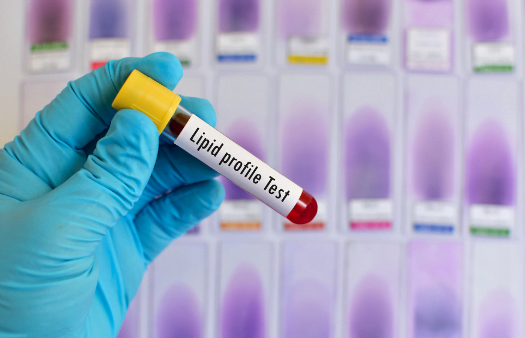Total Fat Testing in Animal Feed Quality Control
In the realm of clinical and healthcare testing, particularly within the domain of cardiovascular and lipid profile testing, the importance of Total Fat Testing in animal feed quality control cannot be overstated. This service ensures that the nutritional content of animal feeds meets not only industry standards but also the specific dietary requirements for various types of livestock, pets, and companion animals.
The process involves a rigorous analysis of fat components present in the feed samples. These tests are critical because they help maintain optimal health conditions for farm animals and pets by ensuring that the fat content is neither too high nor too low. Excessive or insufficient fat levels can lead to various health issues, including obesity, malnutrition, and poor growth rates.
The Total Fat Testing service follows international standards such as ISO 15240-1:2016 for the analysis of fatty acids in animal feed materials. This ensures that the testing results are reliable and consistent across different laboratories. The method involves meticulous sample preparation, extraction of fats using solvents like chloroform-methanol mixture, followed by gravimetric or spectroscopic determination.
The primary focus is on identifying the total fat content along with specific fatty acid profiles which can vary significantly based on feed composition and intended use. For instance, a dairy cow's diet might require more saturated fats compared to a racehorse that benefits from higher unsaturated fats for better performance.
Understanding these nuances helps in formulating feeds tailored specifically for different animal species. This service supports the broader goals of maintaining animal health and welfare by providing accurate data on fat content, which is an essential component of overall nutrition management.
- Competitive Advantage: By offering precise Total Fat Testing services, laboratories can differentiate themselves in a crowded market. Accurate testing ensures that feed manufacturers comply with regulatory requirements while also enhancing product quality and consistency.
- Market Impact: Ensuring high-quality animal feeds through reliable fat content analysis impacts the entire supply chain from producers to consumers. It fosters trust among stakeholders and supports sustainable agricultural practices.
- Innovation: Advanced testing techniques allow for continuous improvement in feed formulations, leading to innovative solutions that cater specifically to diverse nutritional needs of animals.
Industry Applications
The application of Total Fat Testing extends beyond just ensuring compliance with regulatory standards; it plays a crucial role in several key areas within the industry:
- Dairy Industry: Ensuring that feed contains appropriate levels of fats to optimize milk production and quality.
- Poultry Farms: Maintaining optimal fat content helps in achieving better egg-laying rates and meat yield.
- Pet Food Manufacturers: Providing accurate data on fat content allows for consistent product formulations, enhancing customer satisfaction.
- Cattle Feeders: Ensuring that feed meets the specific requirements of cattle at different stages of growth to maximize productivity.
These applications underscore the significance of Total Fat Testing in maintaining animal health and welfare, which is essential for both commercial operations and small-scale farming practices worldwide.
Why Choose This Test
The decision to use Total Fat Testing as part of your quality control measures offers several compelling reasons:
- Regulatory Compliance: Adherence to strict international standards ensures that feeds meet all necessary regulatory requirements.
- Consistent Quality: Reliable testing helps in maintaining consistent fat content across batches, leading to more predictable outcomes.
- Innovation and Research: Advanced testing methods enable continuous improvement and innovation in feed formulations.
- Customer Trust: Providing accurate data builds trust among customers who value quality assurance.
- Sustainability: Ensuring optimal nutrition supports sustainable agricultural practices, reducing waste and environmental impact.
These factors make Total Fat Testing an indispensable tool in the modern livestock industry. It not only aids in compliance but also enhances operational efficiency and profitability.





